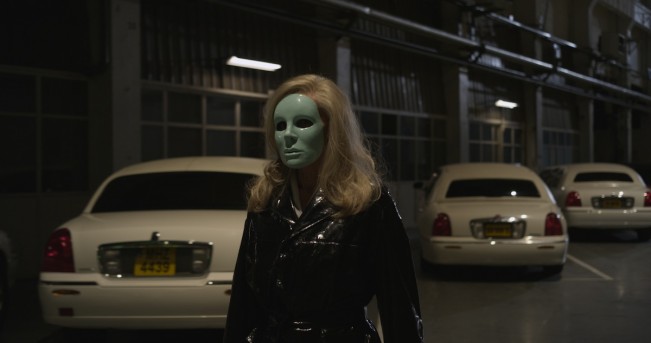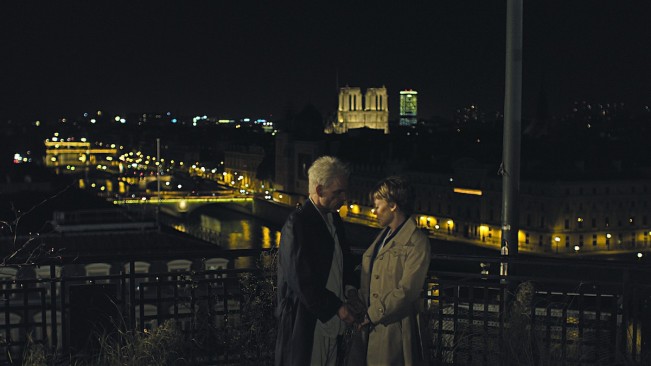

By Ray Pride Pride@moviecitynews.com
Holy HOLY MOTORS!! 9 images, video, press kit extracts

 The tweets after the first screening: c’est incroyable!
The tweets after the first screening: c’est incroyable!
Epigraph to the press kit: “History adds that before or after dying he found himself in the presence of God and told Him: “I who have been so many men in vain want to be one and myself.” The voice of the Lord answered from a whirlwind: “Neither am I anyone; I have dreamt the world as you dreamt your work, my Shakespeare, and among the forms in my dream are you, who like myself are many and no one.”
— Jorge Luis Borges, “Everything and Nothing”
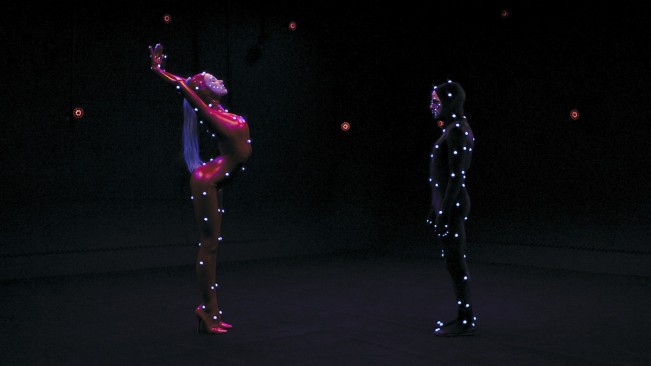
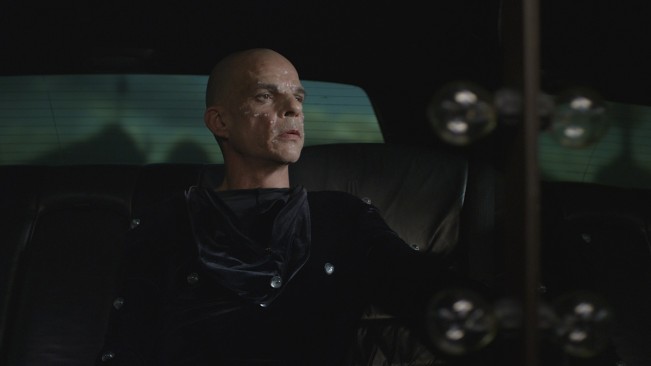 “From dawn to after nightfall, a few hours in the life of Monsieur Oscar, a shadowy character who journeys from one life to the next. He is, in turn, captain of industry, assassin, beggar, monster, family man… He seems to be playing roles, plunging headlong into each part… but where are the cameras? Monsieur Oscar is alone, accompanied only by Céline, the slender blonde woman behind the wheel of the vast engine that transports him in and around Paris. He’s like a conscientious assassin moving from hit to hit. In pursuit of the purely beautiful act, the mysterious driving force, the women and ghosts of past lives. But where is his true home, his family, his rest?”
“From dawn to after nightfall, a few hours in the life of Monsieur Oscar, a shadowy character who journeys from one life to the next. He is, in turn, captain of industry, assassin, beggar, monster, family man… He seems to be playing roles, plunging headlong into each part… but where are the cameras? Monsieur Oscar is alone, accompanied only by Céline, the slender blonde woman behind the wheel of the vast engine that transports him in and around Paris. He’s like a conscientious assassin moving from hit to hit. In pursuit of the purely beautiful act, the mysterious driving force, the women and ghosts of past lives. But where is his true home, his family, his rest?”
HIM Jean, there’s something you don’t know. HER About you? HIM About us. 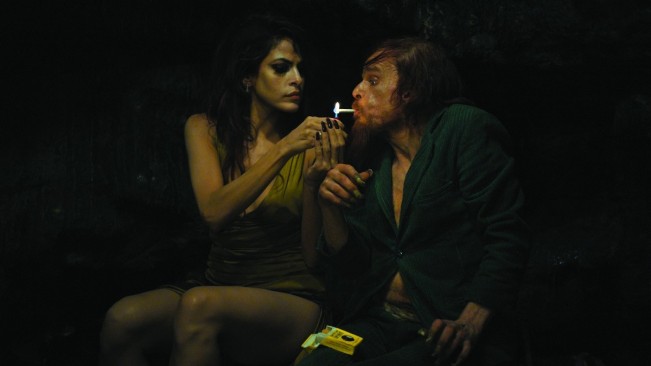 Denis Lavant (monsieur oscar / banker / beggar woman / motion capture specialist / monsieur merde / The father / The accordionist / The killer / The victim / The dying man / The man in the house) Carax: “Like cinema itself, Denis comes from the stage, the fairground and the circus. His body is sculpted like those of the athletes chronophotographed by Marey. and when I film this body on the move, I feel the same pleasure I imagine Muybridge felt watching his galloping horse.”
Denis Lavant (monsieur oscar / banker / beggar woman / motion capture specialist / monsieur merde / The father / The accordionist / The killer / The victim / The dying man / The man in the house) Carax: “Like cinema itself, Denis comes from the stage, the fairground and the circus. His body is sculpted like those of the athletes chronophotographed by Marey. and when I film this body on the move, I feel the same pleasure I imagine Muybridge felt watching his galloping horse.” 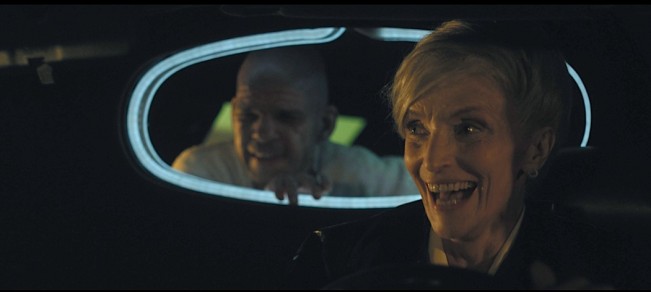 Carax: “Holy Motors was born of my incapacity to carry out several projects, all of them in another language and another country. They all ran into the same two obstacles: casting and cash. Fed up with not being able to film, I used Merde, which had been commissioned in Japan, as inspiration. I commissioned myself to make a project under the same conditions, but in France—come up with an inexpensive film, quickly, for a pre-selected actor. All of it made possible by digital cameras, which I despise (they are imposing themselves or being imposed on us), but which seem to reassure everyone. There’s never any initial idea or intention behind a film, but rather a couple of images and feelings that I splice together. For Holy Motors, one of the images I had in mind was of these stretch limousines that have appeared in the last few years. I first saw them in america and now every Sunday in my neighborhood in Paris for Chinese weddings. They’re completely in tune with our times—both showy and tacky. They look good from the outside, but inside there’s the same sad feeling as in a whores’ hotel. They still touch me, though. They’re outdated, like the old futurist toys of the past. I think they mark the end of an era, the era of large, visible machines. These cars very soon became the heart of the film – its motor, if I may put it that way. I imagined them as long vessels carrying humans on their final journeys, their final assignments. The film is therefore a form of science fiction, in which humans, beasts and machines are on the verge of extinction—“sacred motors” linked together by a common fate and solidarity, slaves to an increasingly virtual world. a world from which visible machines, real experiences and actions are gradually disappearing.”
Carax: “Holy Motors was born of my incapacity to carry out several projects, all of them in another language and another country. They all ran into the same two obstacles: casting and cash. Fed up with not being able to film, I used Merde, which had been commissioned in Japan, as inspiration. I commissioned myself to make a project under the same conditions, but in France—come up with an inexpensive film, quickly, for a pre-selected actor. All of it made possible by digital cameras, which I despise (they are imposing themselves or being imposed on us), but which seem to reassure everyone. There’s never any initial idea or intention behind a film, but rather a couple of images and feelings that I splice together. For Holy Motors, one of the images I had in mind was of these stretch limousines that have appeared in the last few years. I first saw them in america and now every Sunday in my neighborhood in Paris for Chinese weddings. They’re completely in tune with our times—both showy and tacky. They look good from the outside, but inside there’s the same sad feeling as in a whores’ hotel. They still touch me, though. They’re outdated, like the old futurist toys of the past. I think they mark the end of an era, the era of large, visible machines. These cars very soon became the heart of the film – its motor, if I may put it that way. I imagined them as long vessels carrying humans on their final journeys, their final assignments. The film is therefore a form of science fiction, in which humans, beasts and machines are on the verge of extinction—“sacred motors” linked together by a common fate and solidarity, slaves to an increasingly virtual world. a world from which visible machines, real experiences and actions are gradually disappearing.” 









